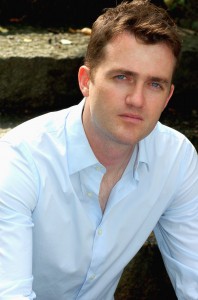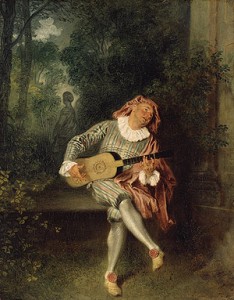by Anne Schuster Hunter

Aaron Sheehan, tenor
Aaron Sheehan has always been one of Tempesta di Mare’s favorite singers. His first appearance with Tempesta was in 2008 and every time he’s come back, it’s been an event.
But now he’s a big star, too. Groups from coast to coast want him. He’s so busy that American Record Guide calls him “the indispensable early music tenor.” Critics love him: “simply astounding,” “setting a standard for exposed, emotional singing,” “unfailingly stylish”—even “heartbreaker”!
He’s coming back to Philadelphia for a project close to his heart: A Secret Flame, songs for Versailles from 17th-century France. “Gwyn and Richard asked me if I wanted to do a French baroque concert,” says Sheehan, “and of course I said ‘yes.’ It’s my favorite stuff to sing.” It’s an opportunity for Philadelphians to hear what all the fuss is about—and along with Sheehan, to try something new, too.
A Secret Flame will give a taste of the late-century opera that’s Sheehan’s signature, such as his Charpentier Actéon with the Boston Early Music Festival and, last spring, with Opera Lafayette at the Kennedy Center. He shines in those big, orchestrated, larger-than-life operatic stories. “As Actéon, Aaron Sheehan is utterly compelling, whether swooning over imperious Diane or emitting disturbing howls during his metamorphosis,” wrote The Guardian about the BEMF CD of that dark fable of jealousy and revenge.
But A Secret Flame also lets him do something he’s never had a chance to do before. “I’ve always wanted to do a lute song recital,” says Sheehan, “something that would let me be a little more intimate.” In this show, he’ll be performing two sets of French gems from earlier in the century: the simple, heartfelt songs called the airs de cour.
…they’re sweet and touching, all these songs about liking love even if it’s painful, about how it’s still something worth having.” He’ll sing some of Moulinié’s Spanish-inflected songs with just guitar accompaniment, “intimate and quiet and a little bit cabaret. Or karaoke, even.”

J.A. Watteau, Mezzetin, ca. 1718-20, www.metmuseum.org
A Secret Flame includes songs by Jean-Baptiste Lully in collaboration with master-satirist Molière, who set sarcasm aside to pen sweet love songs in the spirit of the airs de cour. And it includes two sets by Étienne Moulinié and Michel Lambert, composers and chanteurs who were giants in their time. “The Lambert songs are very harmonic and have beautiful melodies,” says Sheehan. “And they’re sweet and touching, all these songs about liking love even if it’s painful, about how it’s still something worth having.” He’ll sing some of Moulinié’s Spanish-inflected songs with just guitar accompaniment, “intimate and quiet and a little bit cabaret. Or karaoke, even.”
The airs de cour offer real challenges in interpretation. Not many singers, even early music specialists, are willing to take them on. A Secret Flame’s audiences are getting a rare treat. “I’m hoping when people hear them, they’ll like them enough to want more,” says Sheehan. It’s a good bet we will. And that’s no secret, flame or otherwise.
Buy Tickets
